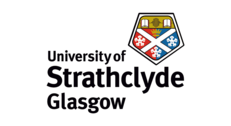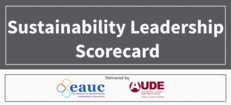University of Strathclyde SLS Case Study
Tags:
scorecard | SLS
University of Strathclyde shares their experience of using the Sustainability Leadership Scorecard
What was pivotal in you securing senior management authorisation to use the Sustainability Leadership Scorecard (SLS)?
Through engaging with senior colleagues we were able to demonstrate the value in engaging with the SLS. The university has already made several commitments to sustainability in general as well as to the Sustainable Development Goals so this was relatively easy to incorporate. We could show how the SLS would help the university meet its current commitments.
What was your approach to completing the Sustainability Leadership Scorecard?
One member of the Estates sustainability team took responsibility for completing the SLS. The approach that was taken was to research policy documents and information on the university web pages as well as to contact staff with relevant roles in other departments in order to gather the information required for each score. The information found was originally inputted to a spreadsheet and then at the time of the deadline, this was copied into the web pages.
Did you encourage colleagues from other Departments to participate and help you with the Sustainability Leadership Scorecard?
Colleagues didn’t really need too much convincing to get involved. However, most of the people that were engaged with for the SLS were already involved in the sustainability network at the university so were more likely to see the value in this kind of activity. The majority of the information gathered for this was taken from the internet so not all departments were directly engaged with.
What are the 3 top benefits of using the Sustainability Leadership Scorecard?
- Through engaging with different staff to complete the SLS, we were able to engage new people in conversations of sustainability. Many people at the university are already aware of and engaged with the SDG’s but not necessarily with sustainability work at Strathclyde. So the SLS gave us the opportunity to bring more people into our work.
- The widespread and integrated nature of the SLS gave a thorough overview not only of sustainability at Strathclyde but also of all the other influencing and connected factors such as wellbeing and engagement. Through this it was fantastic to see how interconnected sustainability is to the institution and now we can use this insight to go forward.
- The target setting aspect of the SLS allowed us, for each issue we identified, to plan clear pragmatic action points going forwards. It is easy to make generalised statements about sustainability targets but the SLS helps us identify the particular areas that needs worked on and move towards this effectively.








 Except where otherwise stated, content on this site is
licensed under a Creative Commons Attribution 3.0 License.
Except where otherwise stated, content on this site is
licensed under a Creative Commons Attribution 3.0 License.
